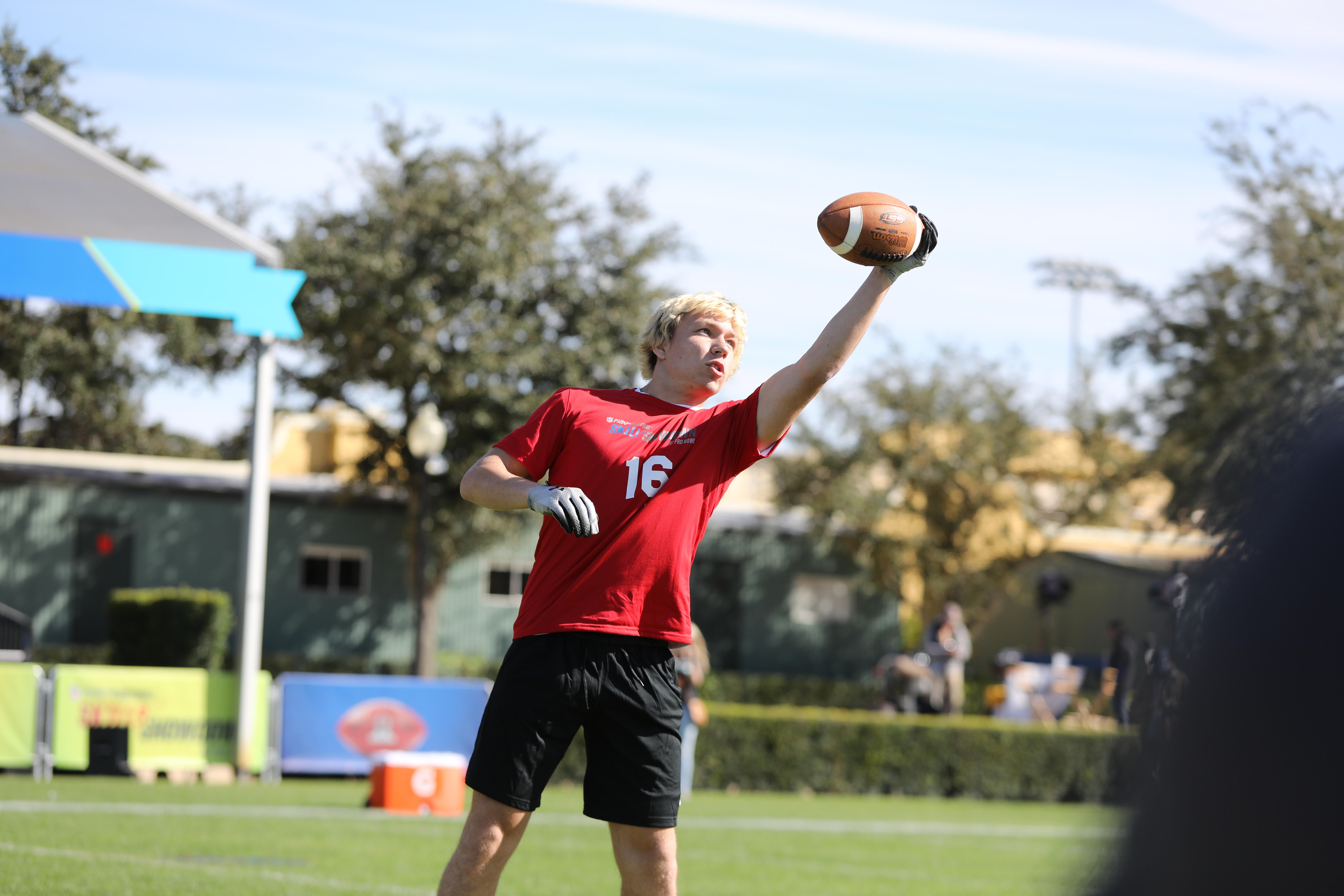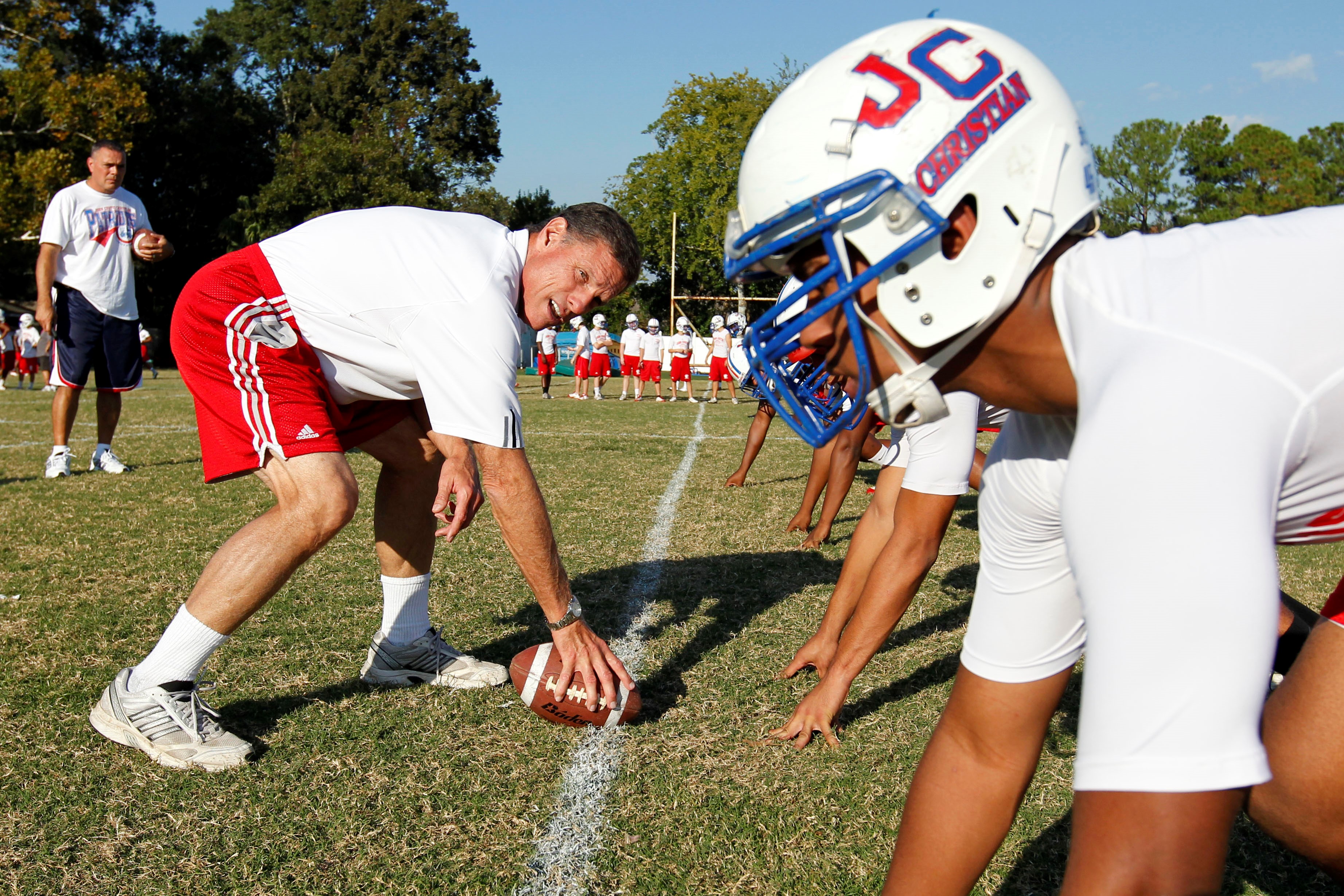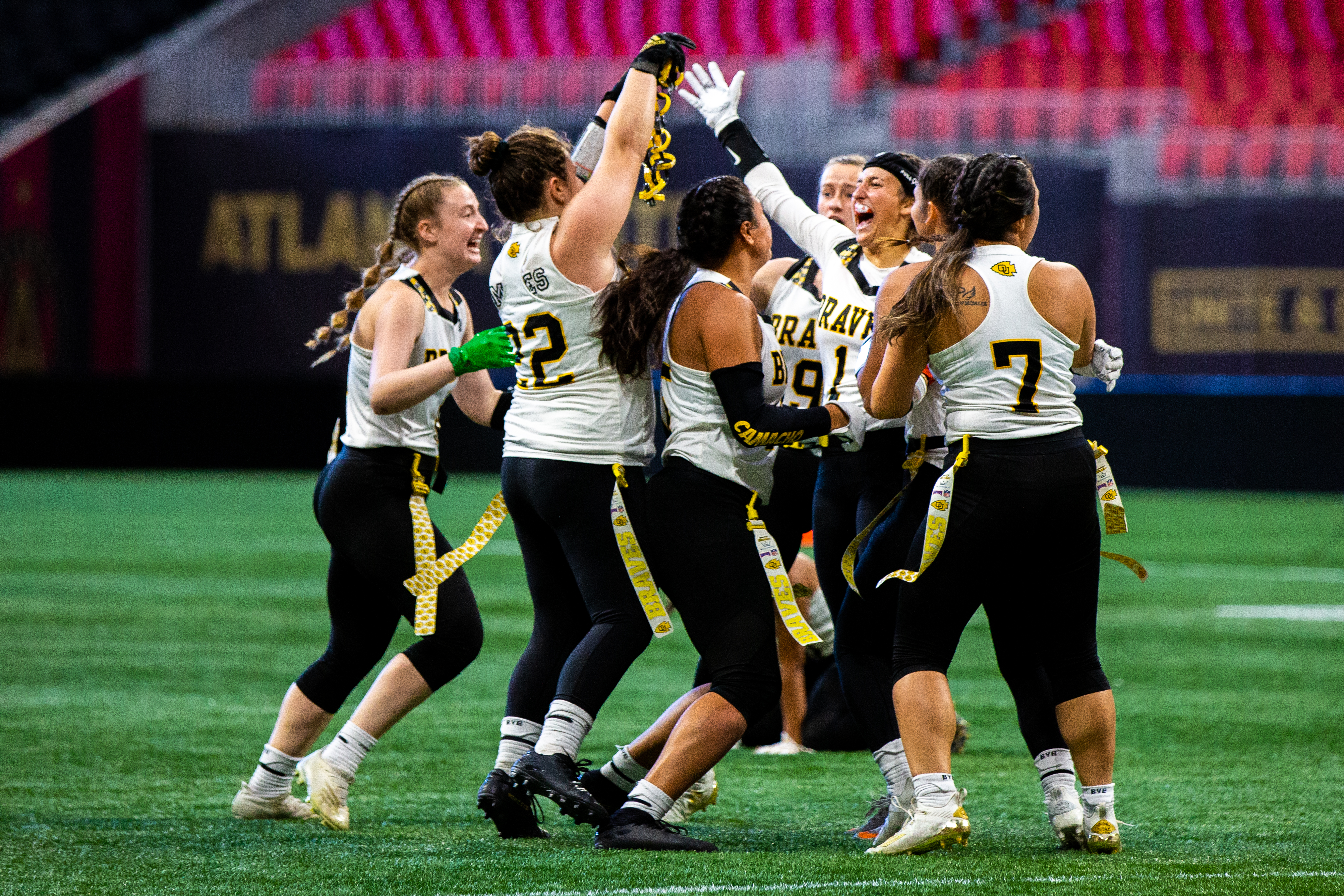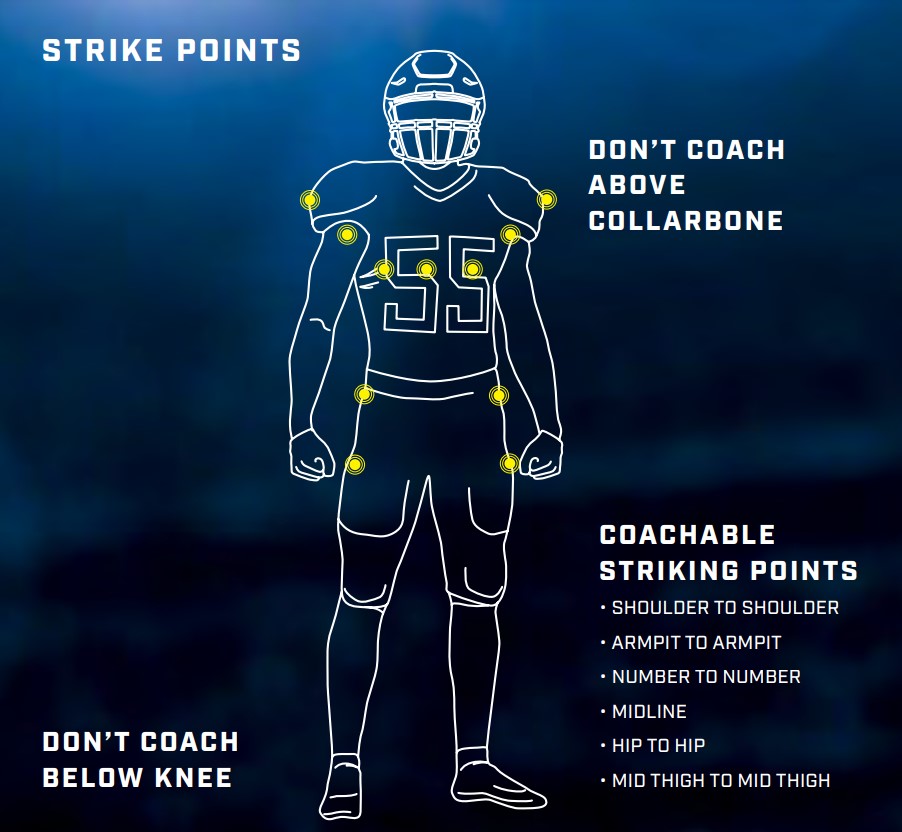The NFL Way to Play helps coaches teach the skills, techniques, and habits that bring players success on and off the field.
The NFL Way to Play is football’s practical development model that applies science, research, data, and peer-to-peer experience to protect players from unnecessary risk, enhance global development, and foster culture change to attain and preserve on-field excellence at all levels of football.
Phases of Football
- STANCE = Stability. Strength. Vision.
- APPROACH = Head Out. Shoulders Down. Knees Bent.
- FINISH = Capable. Confident. Consistent.
The Five Shields of Tackle Football
The Five Shields of Tackle Football represent the best means of protecting players from unnecessary risk and promoting on-field excellence. NFL Way to Play techniques focus on these core areas and serve to protect the game and its players.
 Posture
Posture
Quality posture is the bedrock of athletic performance. An athlete’s posture can substantially limit their exposure to poor performance and injury.
 Space and Speed
Space and Speed
The area of the game where players cover distance with speed, prior to contact. Two areas of focus are tackling and mobility blocks.
 Drill Selection
Drill Selection
Drills selected and practiced throughout development have the power to create and reinforce postural habits. The earlier appropriate drills are introduced to athletes, the better the long-term success in protecting players.
Drills to Use and Avoid
Consider these five factors when selecting drills:
Cadence, Angles, Run/Pass Reads, Schematics, Sportsmanship.
Drill Examples
- Fit Position Starting Point: Engaged with opponent or blocking shield
- Pad Level Drills: Individual drills OL vs. OL, DL vs. DL with blocking pad
- 9-on-7 and 11-on-11 with Run Pass Reads: All short yardage and goal line should be worked in 11-on-11 team drills
Prohibited Drills
- Board Drill / OL vs. DL In-Line Run Blocking (artificially confined)
- Bull in the Ring / King of the Circle
- Oklahoma Drill
- Half Line Drill / Pods / 3-Spot without Run Pass Read
Learn which drills to use and which drills to avoid
 Language
Language
Coaching language should reflect how the game must be played by always encouraging proper posture and by removing the head/helmet as a coaching cue.
 Best Practices
Best Practices
The game of football is constantly evolving, and its paramount for all involved to stay current on the latest science, data, video, and peer to peer experiences to achieve and preserve on field excellence at all levels.
Using the Right Coaching Language
Coaching cues focus the athlete’s attention either externally or internally. The ideal way to coach is through external coaching cues, which are more effective in producing high-quality whole-body movements.
Click on the tabs below to learn more about internal and external coaching cues.
Use external coaching cues to focus players’ attention on environment.
EXAMPLE: "When you are attempting to jump as far as possible, I want you to focus your attention on pushing the ground away from you as fast as you can."
Avoid internal coaching cues that focus players’ attention on a body part or piece of equipment.
EXAMPLE: "When you are attempting to jump as far as possible, I want you to focus your attention on extending your knees as rapidly as possible."

Language to Use
Using the right language automatically reinforces proper technique.
POSTURE
Playing with proper spinal alignment by keeping the shoulders back and the head up
HEAD UP
Focusing on the head being up from player stance and through contact
HEAD OUT
Moving the game toward the helmet being viewed only as a protective device
KNEES BENT
Creating movement by beginning and moving in an athletic position
PADS DOWN
Pad level affects a player’s ability to deliver and receive contact

AP/Gerald Herbert

ANGLES
The game is about leveraging angles to create space, close space, block and make tackles
HANDS FIRST
When possible, the hands should always initiate contact with an opponent
CONSISTENCY
Practice is the key to creating replicable skills
CONFIDENCE
Players must trust they’ve received the best coaching and preparation
CAPABLE
The game is a tool to build the physical, mental, and emotional capacity of players
Language to Lose
Using the wrong language emphasizes improper technique.
All Players
- Emphasis on “Hat Placement”
- Screws on Screws
- Helmet Screws
- Drive Helmet through Target
- Earhole
Offense
- Get Your Head Across
- The 3-Points Contact
- Head and Hands
- V-Neck Aiming Point
Defense
- Head-butt and Press
- Bite the Ball
- Helmet to Chin Relationship

































